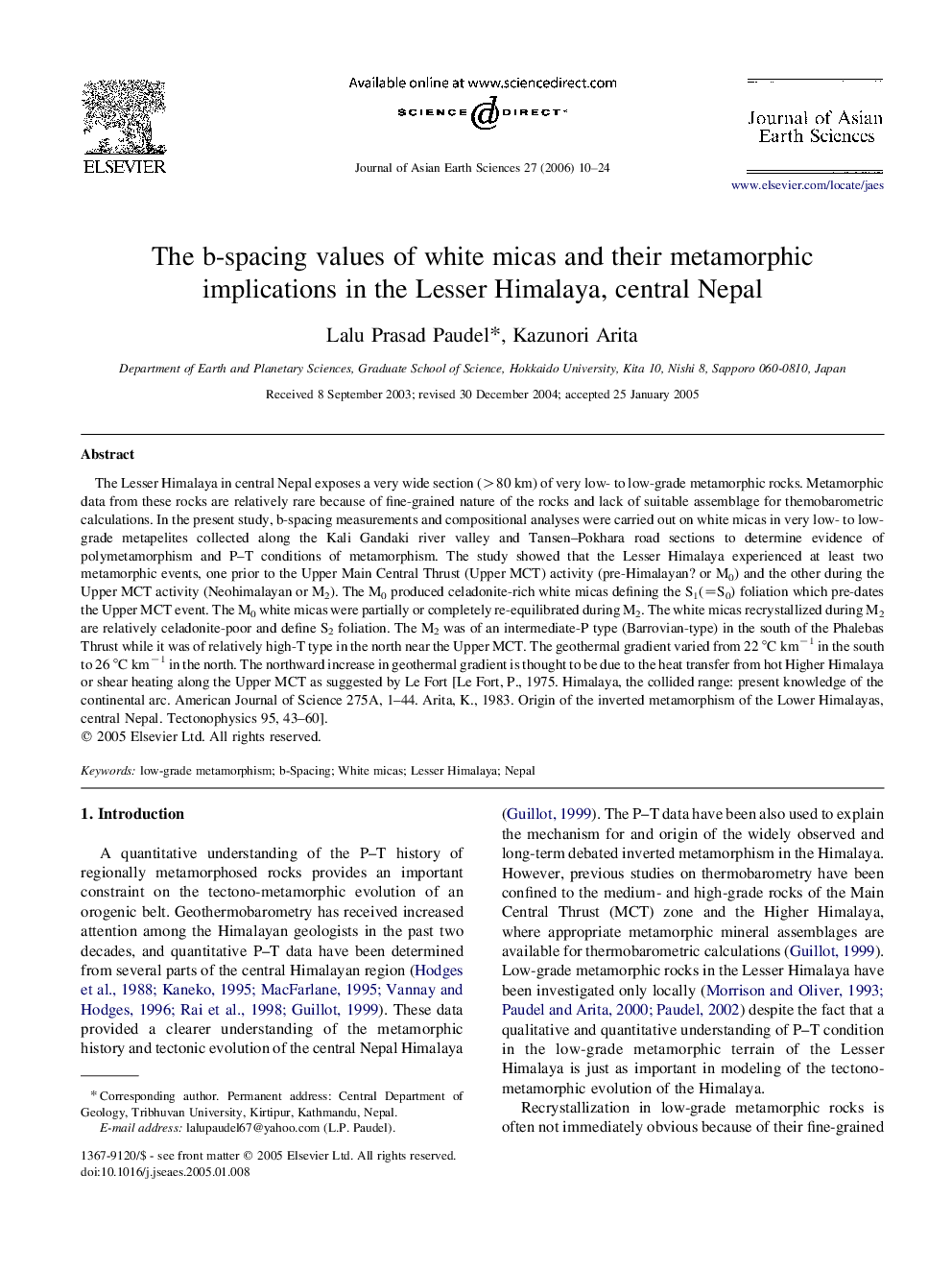| کد مقاله | کد نشریه | سال انتشار | مقاله انگلیسی | نسخه تمام متن |
|---|---|---|---|---|
| 4732698 | 1356884 | 2006 | 15 صفحه PDF | دانلود رایگان |

The Lesser Himalaya in central Nepal exposes a very wide section (>80 km) of very low- to low-grade metamorphic rocks. Metamorphic data from these rocks are relatively rare because of fine-grained nature of the rocks and lack of suitable assemblage for themobarometric calculations. In the present study, b-spacing measurements and compositional analyses were carried out on white micas in very low- to low-grade metapelites collected along the Kali Gandaki river valley and Tansen–Pokhara road sections to determine evidence of polymetamorphism and P–T conditions of metamorphism. The study showed that the Lesser Himalaya experienced at least two metamorphic events, one prior to the Upper Main Central Thrust (Upper MCT) activity (pre-Himalayan? or M0) and the other during the Upper MCT activity (Neohimalayan or M2). The M0 produced celadonite-rich white micas defining the S1(=S0) foliation which pre-dates the Upper MCT event. The M0 white micas were partially or completely re-equilibrated during M2. The white micas recrystallized during M2 are relatively celadonite-poor and define S2 foliation. The M2 was of an intermediate-P type (Barrovian-type) in the south of the Phalebas Thrust while it was of relatively high-T type in the north near the Upper MCT. The geothermal gradient varied from 22 °C km−1 in the south to 26 °C km−1 in the north. The northward increase in geothermal gradient is thought to be due to the heat transfer from hot Higher Himalaya or shear heating along the Upper MCT as suggested by Le Fort [Le Fort, P., 1975. Himalaya, the collided range: present knowledge of the continental arc. American Journal of Science 275A, 1–44. Arita, K., 1983. Origin of the inverted metamorphism of the Lower Himalayas, central Nepal. Tectonophysics 95, 43–60].
Journal: Journal of Asian Earth Sciences - Volume 27, Issue 1, June 2006, Pages 10–24